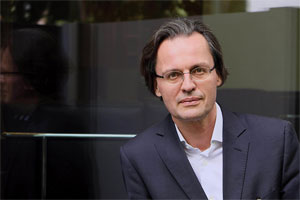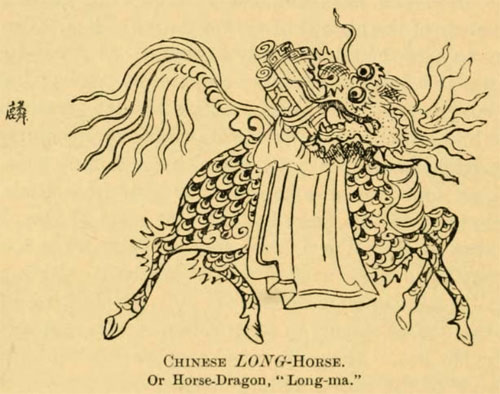by Ursula Richard
Buddhismus aktuell
January 2019
NOTICE: THIS WORK MAY BE PROTECTED BY COPYRIGHT
YOU ARE REQUIRED TO READ THE COPYRIGHT NOTICE AT THIS LINK BEFORE YOU READ THE FOLLOWING WORK, THAT IS AVAILABLE SOLELY FOR PRIVATE STUDY, SCHOLARSHIP OR RESEARCH PURSUANT TO 17 U.S.C. SECTION 107 AND 108. IN THE EVENT THAT THE LIBRARY DETERMINES THAT UNLAWFUL COPYING OF THIS WORK HAS OCCURRED, THE LIBRARY HAS THE RIGHT TO BLOCK THE I.P. ADDRESS AT WHICH THE UNLAWFUL COPYING APPEARED TO HAVE OCCURRED. THANK YOU FOR RESPECTING THE RIGHTS OF COPYRIGHT OWNERS.
How it happens that so many gurus are being disenchanted right now, whether there are patterns in the cover-up of abuse and whether there can still be role models in the future, the media scholar Bernhard Pörksen talks about these and further questions in an interview with Ursula Richard.

A contribution by Ursula Richard published in the issue 2019/1 "grow" in the section Talks
Ursula Richard: In a contribution published in the ZEIT entitled "Disenchanted Gurus," you speak of the end of the religious and spiritual age of heroes. In recent years, quite a few Buddhist gurus have been disenchanted. Why is this happening so often in recent years?
Poerksen: I maintain that this is essentially a media effect, because in the age of digital networking, the power of the guru or master, which seems to be unquestionably open, is more vulnerable than ever. All of a sudden everyone can join in barrier-free, formulate petitions, report on blogs and pillory pages about what has happened to them and what has been done to them. What we are currently seeing in Tibetan and Japanese Buddhism, and at the same time in countless yoga schools and communities around the world, is an underlying implosion of spiritual authority.
That means we know too much ...
... to worship unquestionably. This is a dynamics that is not at all understood in its entirety, because in the shattered view of the individual case we do not recognize the general tendency, the direction of the medial evolution. It is important to realize that aura, charisma and spiritual or secular authority are always a result of successful information and communication control, but increasingly less possible. The lonely valley, the closed monastery, the only imperfect visible misconduct - all this hardly exists in the age of digital media everywhere. A few clicks and we see a yoga master beating a woman's head on a video, watching on YouTube as a supposedly enlightened one vomits a golden egg he's put in his mouth before. In a Netflix documentary (Wild, Wild Country), we see the swaying guru, fueled with nitrous oxide and valium, keenly interested in luxury watches and his steadily growing Rolls-Royce fleet. We read in blogs and forums the shocking reports of abused women, hear of young Tulkus being beaten in monasteries by monks. We learn about an open letter circulating on social media about the brutality a spiritual superstar like Sogyal Lakar has hurt, exploited, and humiliated. We read on dedicated web pages about alcohol addiction and the attacks on women by Sakyong Mipham in the Shambala community. We study the current revelations about the Nazi past of Karlfried Graf Dürckheim and can provide us with the details of the sex scandals of Zen masters Eido Shimano and Joshu Sasaki without any hassle or under the hashtag "#metooguru" on Twitter always new cases and Research allegations. In sum, this means that the saint becomes a broken figure, the guru a sad, miserable, in the extreme case simply criminal character. And inevitably, the image of the sublime rivals its own experiences and the immediately retrievable documents of disassembly and embarrassment for supremacy over the concrete moment.
Can the influence of the digital media world be demonstrated more precisely and with an example?
Just think of the case of Eido Shimano. In concrete terms: He came to the USA from Japan in the 1960s, taught at short notice in Hawaii and lived there with the Zen monk Robert Aitken, who later became famous himself. Both broke up because Shimano had sold out to two students who suffered a breakdown in a row. Aitken pursued from then on the traces of abuse that drew Shimano. He collected material, he put on his own archive, he warned about crossing the border, but he did not do it in front of a large audience. And there was no digital publicity; the world stage of the network did not exist yet. There should be a newspaper article about the attacks, but it was not printed for some reason. For nearly forty years, Aitken documented what Shimano did he wrote down the stories told by abused women; he was given material by others, which he kept. Then he handed over his estate to a university, including a sealed package that said, "Eido Shimano - do not open." Eventually he agreed to the publication ... and the materials were disseminated and digitized ...
... and today there is a separate net archive on the case: The Schimano Archive.
That's the way it is, yes. Since 2010 you can find thousands of pages in various languages, compiled by many volunteers and whistleblowers. Texts, videos, sound documents (http://www.shimanoarchive.com). It covers years and decades of abuse. In other words, in the age of the established mass media and the unpublished newspaper articles, Schimano seemed largely untouchable. However, under the conditions of digital networking his reputation was destroyed at record speed, he himself as a respectable person. One can see in this case, too, that the audience has become media-empowered today - and can even create publicity. This audience has become the new player.
Generally speaking, is all this good or bad?
In the last, this transparency and the new media power of the victims is absolutely welcome. The question, however, will be whether a radically sobered idealism is viable. Whether the many scandal-ridden communities, monasteries and centers simply crumble. And just a lot of depression and disillusionment lingers.
Here in Germany, the fall of the Odenwald School has aroused a lot of attention - a free school, which was considered a showcase for decades and now closed to abuse scandals. The interesting thing seems to me: Here, as far as I know, there was a post in the Frankfurter Rundschau, which reported from the scandalous incidents there, but remained completely ineffective. Only ten years later, the scandal then reached a wider public and did not let itself sink into the box of Pandora. Even with the scandals about Buddhist teachers, there were usually long prehistory, and one often wondered what else would happen or better known, so that what ever came to the public, would bring consequences. Do you think there are aspects
Yes, it always needs the interaction of five factors. On the one hand, it is important - in the sense of media logic - for victims to speak out with their names and faces; this creates the domino effects of reciprocal encouragement and liberating listening that wash away long-held and repressed things. On the other hand, persistently researching, courageous journalists are necessary to verify the allegations, make them known in the established media and are ready for the journalistic long-distance run, because such reporting takes time. Journalists have - as the first reports of massive Odenwald school abuse came up - come up with a mixture of comfort, disbelief, and the fear of corrupting the influential gurus and cheers of reform education with such a disgusting theme, simply did not look closely enough. In addition, courageous individuals from inside the attacked institution must follow their conscience - and continue to advance the Enlightenment without exaggerated consideration for the fate of the perpetrators and past allegiances. Such "inside-outsiders" are enormously significant, which is shown again and again. In the case of the Odenwald School, the rather new Headmistress, who was rather isolated in the reform education scene, played this role. She has decided to listen first, then to force the Enlightenment on with courage. Also, the supporter and sympathizer scene, which has perhaps lamented just about nasty journalists and the "abuse of abuse", has to rearrange and position themselves. After all, in order to prevent the topic from silting up again, an alert public, the increased sensitivity of the audience. This sensitivity, to return to Odenwald School again, was given in the second wave of revelations in 2010 by the dramatic abuse scandals of the Catholic Church in the US and Ireland, which were reported worldwide.
Can patterns be recognized in the Guru's disenchantment? Also with regard to the reactions of the institutions that the Guru chaired or was embedded in, of which he was usually protected for years.
The common reaction in the phase of institutional self-protection and institutional narcissism initially looks like this: one tries to save one's own image, to keep the scandal out of the public, plays it down internally, warns against the spreading of unproven gossip, pays optional hush-money or discredits the victims as untrustworthy and mentally unstable, tries to intimidate them, and responds to initially isolated media reports by imposing sensationalism and dirt campaigns on journalists. If one sees that this does not work, the phase of a fairly diffused revelation by the Master himself, the publicly celebrated purification ritual, follows. The Master then signals inner contemplation and a time of retreat, self-exploration. He says, that he was in despair, that he had possibly injured students without wanting to. Here is, which is mostly the unsatisfactory and obviously strategic such humility gestures, the existence of violations up to the crime of rape to the perceptual problem of the victim side. What has actually happened remains - as the lawyers have long been reading every punctuation mark - somewhat cloudy. But the master is sorry when someone feels hurt, because he loves his students more than himself! Whether it then comes to an objectifying reconstruction, for example, commissioned an independent law firm with the clarification of the allegations and the publication of the research results depends on the power relations within the institution.
Once again, are there any patterns that you believe support the cover-up of abuse in spiritual communities?
It exists, yes. The infallibility ideal is fatal, because for the spiritual seeker, when he recognizes Master's failings, everything is at stake, the entire sense cosmos seems threatened. If the guru turns out to be fallible, is it all possible that lies? Moreover, in some communities the connection to the Master is so much mystified as a kind of sacred bond that dissolution is not considered at all or is seen as a kind of karmic disaster that must be avoided. It also gives those powers who spend sexual submission as a privilege and a sign of surrender, somehow catapulting the student forward on the path to enlightenment. And finally, the actually meaningful recommendation common in many communities, Gossip and gossip and defamation should be the revelation blockade: then react to the disturbing warning with a taboo of somehow unappetizing communication, first sits down with a lowered look on the pillow, watching your own mind - and signaled in the direction of the bearers bad messages: "Leave me alone with this filth!" That is, even the inclination in some Buddhist schools to turn the external irritation initially into a cause for the reflected self-observation and a kind of mental training to premature judgment avoidance can be counterproductive. Because sometimes it is true that you have to look very carefully and examine the allegations exactly. And then forcefully intervene to end horrible suffering. The revelatory blockade will be: Responding to the disturbing warning with a taboo of somehow unappetizing communication, first sit down with a lowered look on the pillow, watching your own mind - and signal towards the bearer of bad messages: "Leave me alone That means, even the tendency in some Buddhist schools to turn the external irritation initially into a reason for the reflected self-observation and a kind of mental training to premature judgment avoidance, can be counterproductive. Because sometimes it is true that you have to look very carefully and examine the allegations exactly. And then forcefully intervene to end horrible suffering. The revelatory blockade will be: Responding to the disturbing warning with a taboo of somehow unappetizing communication, first sit down with a lowered look on the pillow, watching your own mind - and signal towards the bearer of bad messages: "Leave me alone That means, even the tendency in some Buddhist schools to turn the external irritation initially into a reason for the reflected self-observation and a kind of mental training to premature judgment avoidance, can be counterproductive. Because sometimes it is true that you have to look very carefully and examine the allegations exactly. And then forcefully intervene to end horrible suffering. Then you react to the disturbing warning with a taboo of somehow unappetizing communication, first sit down with a lowered look on the pillow, watching your own mind - and signaled in the direction of the bearer of bad messages: "Leave me alone with this dirt!" In other words, the inclination in some Buddhist schools to turn the external irritation initially into a cause for reflective self-observation and a kind of mental training for premature avoidance of judgment can be counterproductive. Because sometimes it is true that you have to look very carefully and examine the allegations exactly. And then forcefully intervene to end horrible suffering. Then you react to the disturbing warning with a taboo of somehow unappetizing communication, first sit down with a lowered look on the pillow, watching your own mind - and signaled in the direction of the bearer of bad messages: "Leave me alone with this dirt!" In other words, the inclination in some Buddhist schools to turn the external irritation initially into a cause for reflective self-observation and a kind of mental training for premature avoidance of judgment can be counterproductive. Because sometimes it is true that you have to look very carefully and examine the allegations exactly. And then forcefully intervene to end horrible suffering. observe your own mind - and signal towards the bearers of bad messages: "Leave me alone with this filth!" That means, the inclination in some Buddhist schools, the external irritation initially in a reason for reflective self-observation and a kind of mental training To turn into premature avoidance of judgment can be counterproductive. Because sometimes it is true that you have to look very carefully and examine the allegations exactly. And then forcefully intervene to end horrible suffering. observe your own mind - and signal towards the bearers of bad messages: "Leave me alone with this filth!" That means, the inclination in some Buddhist schools, the external irritation initially in a reason for reflective self-observation and a kind of mental training To turn into premature avoidance of judgment can be counterproductive. Because sometimes it is true that you have to look very carefully and examine the allegations exactly. And then forcefully intervene to end horrible suffering. Turning the external irritation into an occasion for reflective self-observation and a kind of mental training for premature avoidance of judgment can be counterproductive. Because sometimes it is true that you have to look very carefully and examine the allegations exactly. And then forcefully intervene to end horrible suffering. Turning the external irritation into an occasion for reflective self-observation and a kind of mental training for premature avoidance of judgment can be counterproductive. Because sometimes it is true that you have to look very carefully and examine the allegations exactly. And then forcefully intervene to end horrible suffering.
This year's Berlin Biennale had the motto: "We do not need another hero" - we do not need another hero. Nietzsche spoke of the death of God. If we no longer have a god and we now lose the gurus and heroes, what's left for us? In this context, you also speak of the "burning of role models". But what can we do with our need for role models that credibly embody what they teach, give us hope that what we are trying to achieve is actually achievable?
I think that this question can only be answered individually. Some will seek new masters in response to the disappointment, instant icons and heroes for the moment, if you will. Others will find ways to repress and rationalize disappointment, reinterpreting it as a learning opportunity, helping them to work on their own limitations and blockages. Or they will leave the spiritual path, turn away disillusioned. Still others will discover a post-mythical guru and "human master" whose authority is authenticity and closeness. All these are possible reaction pictures.
But is not this also a chance to grow up in the spiritual realm, in which we have often preserved salvation yearnings that can barely conceal their origin from our children's world? And what could this adult spirituality look like or what could it be?
I dont know. But of course you are right: The Guru 's disenchantment could - in theory - be followed by the adult spirituality that accepts the wounded, carved, but still given role model as normal, ultimately seeing in the Master, above all, the other person, the has many things in advance and can teach much, but which is by no means infallible and omniscient. But you see, I'm just a media and scandal analyst with no special spiritual skills. And as such, I would say: Right now, quite infantile salvation and worship desires are bouncing on the general lust for disenchantment and a garishly overexposed world in which every minor and major misconduct becomes known at lightning speed. And just this clash of perfection longings,
One of your books has the provocative title Truth is the invention of a liar. It contains discussions with Heinz von Foerster, a representative of radical constructivism. Now, in connection with the revelations about gurus, one often hears the argument that everything is just perception. The "victim" experiences actions as, say, sexually assaulting or perceiving certain touches as strokes and therefore experiencing certain things as hurtful or injurious. However, the Guru's intention was to help the person (in overcoming the ego, in enlightenment or whatever) and not to hurt her, so he had a completely different perception of his actions. And so there is regret (by institutional representatives of the guru) not about the act, but about the "victim" perceiving it as harmful.
Of course, there is the act. And the accusation of the victim and the attempts at deprivation of the perpetrator are not equally true. That would be a misunderstanding of constructivism, I mean. But I have to take a moment to explain this. - May I?
Of course, you may ...
My friend and mentor Heinz von Foerster, like many constructivists of the first generation, was inspired by the desire to vaccinate thought against dogmatism. He had survived the Nazi era as a so-called quarter-Jew in Berlin, he was shaken by the horror of ideologically fought truths inside and under no circumstances wanted to bite into the opponent, the ideologists are somehow similar by an anti-ideology. So he created a philosophy of cheerful departure, a guide to thinking differently, more head-on and corrective than a self-contained system of thought that should somehow stand in the semblance of the Absolute. - What do I mean by that? The Constructivism, which then became surprisingly fashionable in academic circles, was extremely suspicious. And I would add: Constructivism, which one uses to relativize the reality of abuse has itself become a dogma; it is a means of power, a propaganda trick with a supposedly epistemological touch. A consistent constructivism should, pathetically speaking, always remain a philosophy of the underdogs. That is, one corrects the big and small ideologies of everyday life, opposes totalitarian claims of truth, and at the same time practices a cheerful skepticism to see more than before. But that's about all. That is, one corrects the big and small ideologies of everyday life, opposes totalitarian claims of truth, and at the same time practices a cheerful skepticism to see more than before. But that's about all. That is, one corrects the big and small ideologies of everyday life, opposes totalitarian claims of truth, and at the same time practices a cheerful skepticism to see more than before. But that's about all.
And yet: The claim that there is no truth, only the individual perception, can be used to devalue the victims. This would mean that a Sogyal Lakar has always acted with good intentions, but unfortunately some people now feel hurt. Likewise, some of his followers argue. And what really happened remains open. It is only about the exchange of different images of reality and perceptions. And everyone is ultimately responsible for his worldview.
That's a danger - and a call for the exact distinction. Because, of course, there is the level of the facts, the reality of the first order. Whether someone was beaten, harassed for years and sexually abused - that can be clarified, if necessary with the help of police and investigators, then with the help of the prosecutor in court. The question of supposedly good intentions and pseudo-spiritual justifications, on the other hand, refers to the level of meanings, that is the reality of second order. There are countless different views here; here rules the dispute, the manifold interpretation that you then (but this is just a mistake or the strategically motivated trick) possibly used to doubt the events on the level of first order itself, according to the motto: Because there are different interpretations, the event itself must be controversial. And in the spirit of a personal-private construction of meaning, then someone can claim that he embodies the tradition of crazy wisdom, in which everything happens anyway only for the benefit of the students. But if you look closely, you see that such ideas - especially in response to a threatening scandal - usually represent a formally expressed form of bullshit, so even of those who represent them, not really believed. You want to make the possibly monstrous events somehow beautiful, that's what it's about. And every means is right - no matter whether one bends an epistemology or tells a "crazy wisdom" fairy tale,
One often disbelieves that leaders in leadership positions of spiritual institutions have not wanted to hear about the scandalous activity of their guru for years and similarly fall out of thin air like outsiders. But this is often claimed by them. There is certainly a great deal of self-protection here, but can it not be the case that the perception of such a responsible person changes so much that she really sees what corresponds to the view represented there and completely ignores it? Already Goethe knew: "You only see what you already know or know." Maybe also applies: "You only see what you have to see in order to belong."
They are actually blind then.
I do exactly this observation as I analyze the dynamics in spiritual or other communities shaken by sex, financial or manipulation scandals. There are those who could really only see and see what they wanted to see and believe anyway. They are actually blind then. And also blind to your own blindness. That happens. And in general, the more sectarian the group, the more pronounced the selective perception. However, more often, there are those who suspect something - and suppress the rumblings in their inner self and the doubt and protest of the inner voices, beautifully talk what they see and build the strangest explanatory bridges to the painful conclusion, the actual necessary knowledge and the to escape the action actually offered; You want to preserve community, affiliation and closeness to the Master, so you minimize the experience dissonance by all means and resources. And then the alleged non-seeing and non-knowledge starts to dazzle, sometimes seems to be simply a timid and then even more intensely practiced form of self-deception, which one day may even believe in.
We live in a time of indignation, of rapid excitement or irritability, of scandal, as a look into the (social) media shows and as you describe it very impressively in your latest book The Great Irritability. And we seem to be less and less observers of an event, but faster and faster, judges who absolutely set their moral point of view and make it the standard of all things. It seems to me to be important and necessary to draw away the mantle of silence about abuse in every form, but also about disparaging remarks concerning other religions and their followers, to clearly name this behavior and draw consequences from it. But how can we avoid hypocrisy and one-dimensionality ourselves? Do we need an ethic of the Enlightenment in the digital age? How could she look?
That seems to me a tremendously important question. In this book I develop - in the sense of a suggestion - an educational utopia, in order to not only get stuck in the inevitably gloomy crisis analysis. My question was: how can we dampen the unhealthy immediate excitement, preserve a communication climate of searching discussion, and re-establish the balancing act of the Enlightenment at a time when everyone, a smartphone in their hands, can quickly turn to the public? My own answer is succinct: we should become the digital society of the present for the editorial society of the future. What do you mean with that? In editorial society, the ideals and maxims of good journalism have become an element of general education. For example, they read: "Check first, publish later! Be skeptical, even with your own judgments! Analyze the sources! Always listen to the other side! Act transparent in dealing with your own mistakes! Pay attention to relevance and proportionality, so do not make an event bigger than it is! "In the maxims of good journalism, I maintain, there is an ethics for the general public that concerns everyone today. She should be taught in a separate subject at school. Because we have become media powerful, we must now also become media. Because what would be, seriously asked, the alternative? Paternalism? Increasingly sophisticated laws? The most effective communication control? For me, these are ultimately unworthy proposals shaped by education mistrust and educational pessimism. Since I wanted to counter - even optimist on principle -. Be skeptical, even with your own judgments! Analyze the sources! Always listen to the other side! Act transparent in dealing with your own mistakes! Pay attention to relevance and proportionality, so do not make an event bigger than it is! "In the maxims of good journalism, I maintain, there is an ethics for the general public that concerns everyone today. She should be taught in a separate subject at school. Because we have become media powerful, we must now also become media. Because what would be, seriously asked, the alternative? Paternalism? Increasingly sophisticated laws? The most effective communication control? For me, these are ultimately unworthy proposals shaped by education mistrust and educational pessimism. Since I wanted to counter - even optimist on principle -. Be skeptical, even with your own judgments! Analyze the sources! Always listen to the other side! Act transparent in dealing with your own mistakes! Pay attention to relevance and proportionality, so do not make an event bigger than it is! "In the maxims of good journalism, I maintain, there is an ethics for the general public that concerns everyone today. She should be taught in a separate subject at school. Because we have become media powerful, we must now also become media. Because what would be, seriously asked, the alternative? Paternalism? Increasingly sophisticated laws? The most effective communication control? For me, these are ultimately unworthy proposals shaped by education mistrust and educational pessimism. Since I wanted to counter - even optimist on principle -. also against your own judgments! Analyze the sources! Always listen to the other side! Act transparent in dealing with your own mistakes! Pay attention to relevance and proportionality, so do not make an event bigger than it is! "In the maxims of good journalism, I maintain, there is an ethics for the general public that concerns everyone today. She should be taught in a separate subject at school. Because we have become media powerful, we must now also become media. Because what would be, seriously asked, the alternative? Paternalism? Increasingly sophisticated laws? The most effective communication control? For me, these are ultimately unworthy proposals shaped by education mistrust and educational pessimism. Since I wanted to counter - even optimist on principle -. also against your own judgments! Analyze the sources! Always listen to the other side! Act transparent in dealing with your own mistakes! Pay attention to relevance and proportionality, so do not make an event bigger than it is! "In the maxims of good journalism, I maintain, there is an ethics for the general public that concerns everyone today. She should be taught in a separate subject at school. Because we have become media powerful, we must now also become media. Because what would be, seriously asked, the alternative? Paternalism? Increasingly sophisticated laws? The most effective communication control? For me, these are ultimately unworthy proposals shaped by education mistrust and educational pessimism. Since I wanted to counter - even optimist on principle -. Always listen to the other side! Act transparent in dealing with your own mistakes! Pay attention to relevance and proportionality, so do not make an event bigger than it is! "In the maxims of good journalism, I maintain, there is an ethics for the general public that concerns everyone today. She should be taught in a separate subject at school. Because we have become media powerful, we must now also become media. Because what would be, seriously asked, the alternative? Paternalism? Increasingly sophisticated laws? The most effective communication control? For me, these are ultimately unworthy proposals shaped by education mistrust and educational pessimism. Since I wanted to counter - even optimist on principle -. Always listen to the other side! Act transparent in dealing with your own mistakes! Pay attention to relevance and proportionality, so do not make an event bigger than it is! "In the maxims of good journalism, I maintain, there is an ethics for the general public that concerns everyone today. She should be taught in a separate subject at school. Because we have become media powerful, we must now also become media. Because what would be, seriously asked, the alternative? Paternalism? Increasingly sophisticated laws? The most effective communication control? For me, these are ultimately unworthy proposals shaped by education mistrust and educational pessimism. Since I wanted to counter - even optimist on principle -. Pay attention to relevance and proportionality, so do not make an event bigger than it is! "In the maxims of good journalism, I maintain, there is an ethics for the general public that concerns everyone today. She should be taught in a separate subject at school. Because we have become media powerful, we must now also become media. Because what would be, seriously asked, the alternative? Paternalism? Increasingly sophisticated laws? The most effective communication control? For me, these are ultimately unworthy proposals shaped by education mistrust and educational pessimism. Since I wanted to counter - even optimist on principle -. Pay attention to relevance and proportionality, so do not make an event bigger than it is! "In the maxims of good journalism, I maintain, there is an ethics for the general public that concerns everyone today. She should be taught in a separate subject at school. Because we have become media powerful, we must now also become media. Because what would be, seriously asked, the alternative? Paternalism? Increasingly sophisticated laws? The most effective communication control? For me, these are ultimately unworthy proposals shaped by education mistrust and educational pessimism. Since I wanted to counter - even optimist on principle -. She should be taught in a separate subject at school. Because we have become media powerful, we must now also become media. Because what would be, seriously asked, the alternative? Paternalism? Increasingly sophisticated laws? The most effective communication control? For me, these are ultimately unworthy proposals shaped by education mistrust and educational pessimism. Since I wanted to counter - even optimist on principle -. She should be taught in a separate subject at school. Because we have become media powerful, we must now also become media. Because what would be, seriously asked, the alternative? Paternalism? Increasingly sophisticated laws? The most effective communication control? For me, these are ultimately unworthy proposals shaped by education mistrust and educational pessimism. Since I wanted to counter - even optimist on principle -.
Finally, is there a maxim in matters of abuse?
Yes. One must, as hard and painful as it is, someday consider the unthinkable as conceivable - in spite of one's own experiences of beauty, silence and friendliness. "Recognize the other in its strangeness and its terror," is how one could formulate the categorical imperative of perception that applies here. "And then check carefully and without prejudice and act immediately to strengthen the victims and prevent future suffering."
This interview will be available in English at the beginning of January online with the US magazine Tricycle read. tricycle.org
Bernhard Pörksen is Professor of Media Studies at the University of Tübingen. He explores the power of public outrage and the future of reputation, and publishes essays and commentary in many newspapers, in addition to academic essays. His books with the philosopher Heinz von Foerster (truth is the invention of a liar) and the communication psychologist Friedemann Schulz von Thun (communication as a way of life) were bestsellers. In 2008 Bernhard Pörksen was elected "Professor of the Year".






